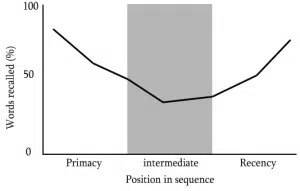
Yesterday, thirteen weeks after his job had been made ‘redundant’, a stranger phoned me out of the blue. He had just discovered that his former employer had re-advertised his ‘redundant’ role.
Take note. Thirteen weeks on, he was still very angry and emotionally caught up in his redundancy and the way he was treated on his exit.
Here I was listening to a stranger vent, who was incensed and determined to do serious harm to his former employer: to their reputation; to their employer brand; to their future talent pool; to their sales; to their legal costs.
It was very obvious by his tone and his words that he had not been treated with dignity and respect upon being laid off. Had his employer done so, he would not have been feeling like this, nor the need to take any action, legal or otherwise.
Lessons from a Leading Event Manager
An award winning Event Manager once shared with me that one of the keys to her success was for all her meetings and events: ‘to start strong and finish strong.’
She asserted that what happened in the middle of an event or meeting was far less important, than what happened at the start and the finish.
In Marketing, this principle is called the ‘primacy and recency effect’. What happens first is remembered. What happens last is remembered.

In HR, there is ample research that shows that onboarding, or starting the employment experience ‘strong’, creates the conditions for successful performance.
However, what I hear time and again is how poorly businesses exit their employees – which is the ‘recency effect’.
It’s the last experiences that hang forever in the departing employee’s mind.
In reality relatively few employers ‘finish strong’ with their departing employees.
My experience shows this is a huge mistake. Not finishing strong can cause untold damage to an employer’s brand and reputation.
At CareerSupport365, we conducted research amongst hundreds of people who had lost their jobs, that gives weight to this:
- 88 percent of former employees felt more likely to still talk poorly about their employer within 13 weeks of losing their job.
- 89 percent of laid off employees said they would have felt ‘much more positive’ towards their employer had their former employer provided them with outplacement or career transition support.
- Had they been provided with outplacement or career transition support, 95 percent of people would have felt ‘far less inclined’ to post adverse comments about their own former employers.
Again, drawing from Marketing, there is an old marketing adage, that people are seven times more inclined to complain and moan, than to praise.
If you are peeved, you will vent and post. Peeved former employees post to sites like Glassdoor or JobAdvisor.
Peeved employees who are unemployed and have time, post and vent often!
No employer wants that. And frankly, no former employee wants to feel they have to vent.
Tony Featherstone wrote an article that offered some practical ideas to smooth out the redundancy process:
- Allow for flexible notice periods.
- Include departing employees in meetings during their notice period.
- Provide the departing employee with an internal transitioning ‘mentor’.
- Engineer a dignified farewell for the departing employee.
- Have an external party conduct exit interviews several months after departure.
- Provide alumni networks that encourage support, communication and the possibility of re-employment.
- Provide a meaningful outplacement experience.
Had his former employer provided any of these interventions, I doubt I would have received yesterday’s phone call from the disgruntled caller, hell-bent on wreaking havoc and bearing a grudge on his former employer.
* * * * * * * *






